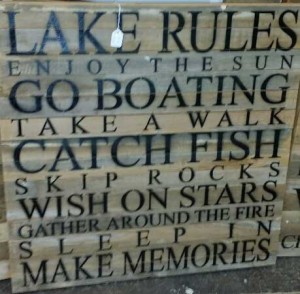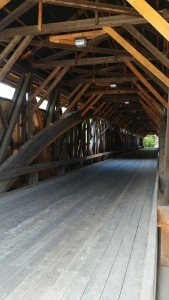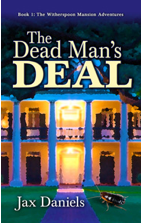Graphic: phdcomics.com
The writer’s workshop at this upcoming Worldcon has been so well enrolled (thanks to the hardworking program coordinator, Adrienne Foster) that a request for more moderators went out. I asked a couple of people if I could pass on their names. They both asked what a moderator does. I Googled to see what I might send them on the subject. While I found a lot on moderating panels, I found only a little on moderating one-time writer’s workshops where the work is distributed in advance, in other words, SF and fantasy con workshops. Since I’m told I’m a good moderator, I’ll share my process and some experiences. This week, I’ll start with one of my experiences…
My Nightmare with Mr. Diva.
If you are into SF and fantasy and haven’t heard about the Hugo kerfuffle at this year’s Worldcon, I think I envy you. But dickishness isn’t limited to Hugos and Sasquan (who by the way look like they are putting together an amazing Worldcon. Scuttlebutt I heard is that over 10,000 people are coming. Wow!). I am lucky enough to be a panelist and a workshop moderator this year. I’m thrilled to happy hamster dance status. But it’s not my first Worldcon.
Many, many years ago, I was excited to be asked to moderate at a Worldcon writer’s workshop. What’s more, I had a BIG NAME as a pro critiquer in my section. Oh, fan me before I feint! So I was certainly twitterpated at the prospect of not just meeting him but also sitting down and working next to him.
When the workshop started, he was nowhere to be found, so we started without him. We had three manuscripts, two were military SF and one was fantasy. Now even back then, I’d been an editor for over a decade, so I knew writing. The two military SF manuscripts were rough as sandpaper, but the fantasy submission showed enough promise that I was going to ask the author into our writer’s group.
For that con, the timing of the workshop was off what I usually did at con workshops. We either had only 2.5 hours (instead of 3) or an extra pro. This meant that each person was severely limited in the amount of time to give the critique. One of the other pros was in the middle of his short turn when Mr. Diva whirls in like a cartoon Tasmanian devil.
Before he sits down, he announces, “We all know everyone here wants to hear from me, but I’ve got places to be. So I’m just going to give all three critiques and get out of here.” He then sat down and dived into the critiques. He spent fifteen to twenty minutes each on the two guys who wrote the military stuff, praising them. Lastly, he turned on the fantasy author and told her how boring and not worthwhile this work was, giving her less than five minutes of his time. Then he just upped and left.
In all of thirty-five to forty minutes, he’d disrupted the workshop with his whirlwind entrance; he’d been discourteous to a fellow professional by cutting him off in mid critique; and he’d stolen time from the other critiquers. But that’s fairly insignificant stuff for a big fish splashing about in a little writer’s workshop pond. What was unforgivable was his treatment of the submitting writers.
He’d stolen time from them. Each one did not get the benefit of a broad critique. They did not get to ask him questions at the end or get clarifications on points. But worse still, he was wrong. He let his preferences cloud his judgment of the works. As a military SF writer, his critiques demonstrated a bias for those two manuscripts that shared his genre. As an editor, I edit things all the time that are outside my main interests, but that doesn’t mean I cannot recognize good writing independently from the subject. The woman fantasy writer had better skills and a more developed writing style. Mr. Diva did a hatchet job on the woman’s work and, judging from his comments and the more promising quality of her work, he at best did so purely out of a disinclination for fantasy. At worst he was sexist, which it sure felt like at the time, but I can’t say for sure. In the end he undermined her, dismissed her work, gave her an unequal share of his time, and stole the time other critiquers would have spent on her manuscript. She certainly did not get the value of her manuscript submission fee.
Mr. Diva swept out of the room, leaving me there as moderator to figure out how to clean up the mess. I did the best I could to get her extra of the remaining time, but it was precious little. The other pros and folks still had their comments to make on the military SF. I sought her out afterwards and apologized. I did invite her to our group, but she declined. I was sorry about that. She showed real promise.
Since then I’ve given a lot of thought on how to improve my moderating skills so that I can ensure each participant gets a fair critique. After all, the point is to give them the direction they need to write better and to improve their manuscripts. I’ve often thought about what I could have done differently. It’s a tough call, but if I had it to do over again, I think I would say something like this: “Mr. Diva, I’m so sorry to hear that your schedule is overloaded. But right now, so-and-so is in the middle of her review. I’d hate to be rude and interrupt right now. Everyone here would love you to take a seat and join us but if you are too busy, perhaps I can help out with that. Why don’t you just hand out your written comments to the authors. That will allow you extra time to pursue whatever you need to.”
It’s important when you moderate to think about the process and the pitfalls in advance. You won’t always foresee every problem, but there are many you can. Think about what you will do to handle people who talk too long, start up a conversation with the author or other participants, or just come in late. One person came in late at one of my workshops and sat down in a chair that we’d gone past in our critique. When we came to the end of the circle, I forgot to go back to her! Fortunately someone else was on the ball and let me know. Now I make a note to go back to anyone who comes in late. Take the time. Sit. Think. Visualizing these things will help your workshop flow more smoothly.











